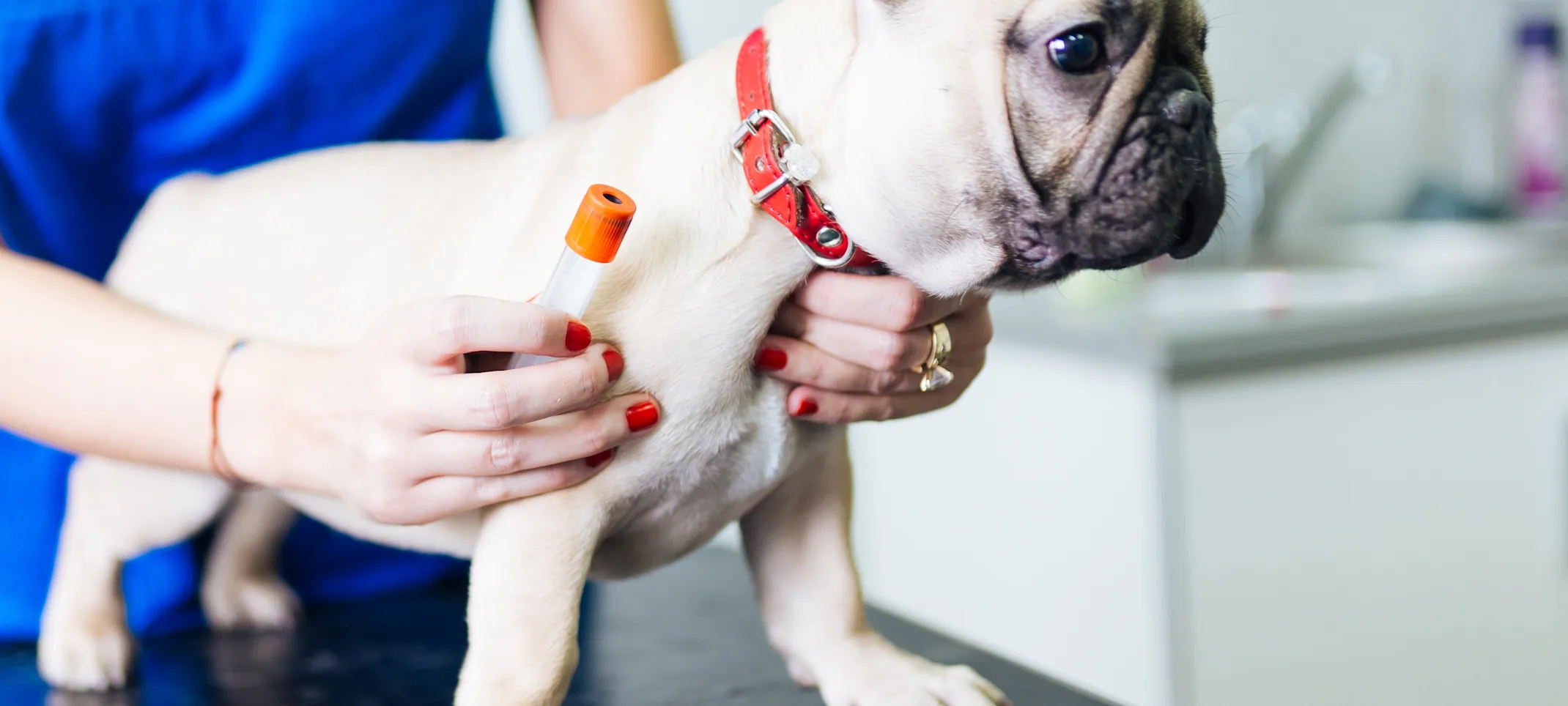Sherwood Veterinary Clinic
Vaccinations
Preventative care is an important aspect in maintaining your pet’s health. Proper vaccination is vital in protecting them against harmful diseases.

Overview
We believe that preventative care is one of the most important aspects of maintaining your pet’s health. There are a variety of diseases that affect animals, so proper vaccination of your pet is vital in protecting them from the many types of illnesses to which they are susceptible to.
Why are vaccinations important?
Vaccinations are vital to the health and protection of your pet, and serve as a preventive measure in combating viral diseases like Parvovirus, Parainfluenza virus, Distemper, Lyme Disease, Panleukopenia, Feline Leukemia Virus, and Rabies.
When should my pet get vaccinated?
Vaccinations are particularly important for puppies, kittens, and other young animals that have immature immune systems. Veterinary vaccinations generally begin at 6-8 weeks of age and then boostered throughout your pet’s life depending on the vaccine. Our doctors will determine the appropriate vaccination plan for your pet.
How are vaccines administered?
Vaccines help to combat diseases by exposing the pet's immune system to inactive or small amounts of a particular form of bacteria or virus. Vaccines are administered through a subcutaneous injection (under the skin), orally, or intra-nasally, depending on the vaccine.
Vaccinations are accompanied by a consultation and examination with our veterinarians to make certain that your pet's condition is stable enough to receive them. Proper and timely administration is necessary to ensure optimal protection.
Dog Bordetella Vaccine
The Bordetella vaccine is very similar to that of our flu shot – it helps the body defend against an upper respiratory infection. While a dog is more likely to become infected with an upper respiratory condition in kennel and grooming facilities (where there are more animals in a small, enclosed space experiencing stress), this vaccine is appropriate for all dogs to receive. This vaccine is designed to increase a pet’s resistance to the Bordetella bronchiseptica bacterium which as actually spread through aerosols, meaning the infected animal does not need to come into contact with another dog to spread the infection.
This is why many facilities such as Doggy Day Cares, Training Classes, Boarding Facilities, and Groomers require the vaccination prior to seeing your dog.
Cat Leukemia Vaccine
In humans, we often associate leukemia with cancer. In cats; however, it is most commonly linked to a leukemia-causing retrovirus. While many people choose only to vaccinate their outside cats against this condition, we always advise caution and recommend it for all of our feline friends. In fact, a few years ago the incidence of the feline leukemia virus was so high that the Edmonton Humane Society and Animal Care and Control Centre released a campaign showing an indoor cat sitting at an open window with an outdoor cat hissing at it through the screen. This ad was to demonstrate how easily transmission can occur, even though the two cats never came into physical contact with each other.
Vaccinations and Adult Pets
While animals are considered to be ‘seniors’ at the age of seven, they are often still able to receive vaccination at their routine schedule for a few more years. As our pets age their needs change and we start considering more carefully the balance between overall health and the ability of the body to handle vaccinations based on their risk assessment.
Since many of our older pets are still able to receive vaccinations well into their golden years, the choice to forgo vaccination can only be determined on an individual basis. Our veterinarians are equipped to perform risk assessments with you and help determine exactly what vaccines are, or are not, appropriate for your pet and their unique situations. While vaccinations are really quite safe, we must take into account other pre-existing medical conditions that may inhibit the ability of your pet’s immune system to mount an effective response to the vaccine.
Titre Testing
While titre testing is still quite new in the veterinary field, we are happy to say that we are able to offer this service to our clients. Manufacturers of our vaccines actually use titre testing themselves to assess the efficacy and duration of effect of the vaccines. They have found that the vaccines are effective for 12-36 months from date of vaccination. Often people choose to vaccinate yearly to be certain their pets have complete immunity, however, for anyone who is interested in pursuing titre testing, we are happy to accommodate!
While titre testing is a great option for anyone, it is particularly advantageous to owners who have a pet that experiences a rare vaccine reaction. Often these reactions are an allergic response and can be maintained by administering an injectable antihistamine 20 minutes before administering the vaccine. However, as titre testing becomes more popular, it will become more readily available to us. We are happy to discuss this option with anyone who has questions or concerns.
